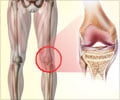Calcium Supplements
With the ever-increasing incidences of osteoporosis, arthritis, rheumatism and rickets, people are increasingly being aware of the requirement of calcium for the health of bones. Calcium is required by the body for a variety of purposes.
Importance of Calcium
Calcium is essential for many functions in the body, including:
- Regulating the heartbeat
- Conducting nerve impulses
- Stimulating hormone secretions
- Clotting of blood
- Building and maintaining healthy bones
Calcium is a mineral found in many foods. Getting enough of this nutrient is important because the human body cannot make it. Even after you are fully-grown, adequate calcium intake is important because the body loses calcium every day through the skin, nails, hair, and sweat, as well as through urine and feces. This lost calcium must be replaced daily through the diet. Otherwise, the body takes calcium out of the bones to perform other functions, making the bones weaker, more fragile and breakable over time.
Requirement
The National Institutes of Health (NIH) Consensus Conference on Osteoporosis recommends the following calcium intake:
- 800 mg/day for children ages 1 to 10
- 1000 mg/day for men, premenopausal women, and postmenopausal women also taking estrogen
- 1200 mg/day for teenagers and young adults ages 11 to 24
- 1500 mg/day for post-menopausal women not taking estrogen
- 1200mg to 1500 mg/day for pregnant women and nursing mothers
- The total daily intake of calcium should not exceed 2000 mg.
What are calcium supplements?
Calcium exists in nature only in combination with other substances, as a compound. Several different calcium compounds are used in supplements, including Calcium carbonate, Calcium phosphate and Calcium citrate.

These compounds contain different amounts of elemental calcium, which is the actual amount of calcium in the supplement. It is important to read the label carefully to determine how much elemental calcium is in the supplement and how many doses or pills to take.
Calcium supplements are available without a prescription in a wide range of preparations and strengths, which can make selecting one a confusing experience. Many people ask which calcium supplement they should take. The best supplement is the one that meets all your needs. Ask yourself these questions:
- How well does my body tolerate this kind of supplement? Does it cause any side effects (like gas or constipation)? If so, you may want to try another kind or a different brand.
- Is this kind of supplement convenient? Can I remember to take it as often as recommended each day?
- Is the cost of this supplement within my budget?
- Is it widely available? Can I buy it at a store near me?
If answers to all these questions are satisfactory, just grab it!
Words of wisdom
A few points should be carefully weighed and analyzed before opting for a calcium supplement.
Purity: Choose calcium supplements with familiar brand names. Look for labels that state, "purified". Avoid calcium from unrefined oyster shell, bone meal, or dolomite because it may contain high levels of lead or other toxic metals.
Absorbability: Most brand-name calcium products are absorbed easily in the body. If you are not sure about your product, you can find out how well it dissolves by placing it in a small amount of warm water for 30 minutes and stirring it occasionally. If it hasn't dissolved within this time, it probably will not dissolve in your stomach. Chewable and liquid calcium supplements dissolve well because they are broken down before they enter the stomach.
Tolerance: Some people develop side effects with some calcium supplements, such as excessive gas or constipation. If simple measures (such as increasing your intake of fluids and high-fiber foods) do not solve the problem, you should try another form of calcium. Also, it is important to increase the dose of your supplement gradually: take just 500 mg a day for a week, and then slowly add more calcium. Do not take more than the recommended amount of calcium without your doctor's approval.
Calcium Interactions: It is important to talk to a doctor or pharmacist about the possible interactions between your over-the-counter and prescription medications, and calcium supplements. For example, calcium supplements may reduce the absorption of the antibiotic tetracycline. Calcium also interferes with iron absorption. So you should not take a calcium supplement at the same time as an iron supplement - unless the calcium supplement is calcium citrate, or unless the iron supplement is taken with vitamin C. Any medication that you need to take on an empty stomach should not be taken with calcium supplements.
















